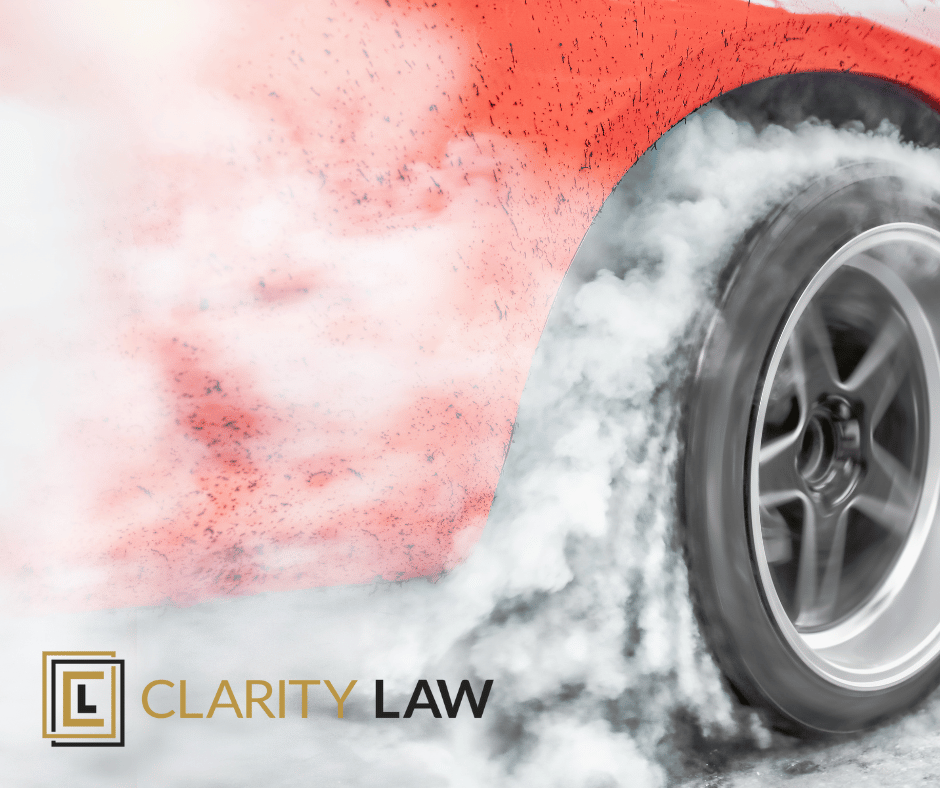
The Queensland government has taken significant steps to address the issue of dangerous driving through the implementation of stricter laws targeting group hooning activities. These comprehensive measures, introduced by Mark Ryan, Minister for Police and Corrective Services reflect, they say, Queensland's commitment to road safety while sparking a debate about personal freedoms and government intervention.
The new laws are contained in the Summary Offences Act and are called offences associated with hooning offences. They are designed to stop people from conduct that promotes or encourages the commission of hooning offences (including sharing images or films of hooning offences) or the possession of things used to commit hooning, burn out or racing offences.
Why has the government bought this law in?
These new laws, which augment Queensland's existing anti-hooning laws, aim to tackle various aspects of group hooning. The amendments encompass a range of offences, from active participation and spectatorship to the organisation, promotion, and possession of items associated with such activities.
The key components of the new laws include:
- Participation and Spectatorship: A Dual Approach
One of the key features of the amended laws is the introduction of penalties for both active participants and spectators at group hooning events. This approach aims to hold both individuals behind the wheel and those who endorse such dangerous behaviour accountable. - Targeting Organisers and Promoters
By criminalising the organisation and promotion of group hooning events, the amendments extend their reach to participants and spectators. This controversial aspect of the legislation raises questions about the extensive reach of the law. - Cracking Down on Facilitating Items
The laws also prohibit the possession of items that could facilitate group hooning, such as false number plates. Critics might argue that this provision could lead to unintended consequences, impacting innocent individuals who might possess such items for legitimate reasons.
Minister Mark Ryan expressed the government's standpoint, stating, "Life is precious, and too many lives are lost on our roads. Hooning will not be tolerated. If you want to tear up our roads, we'll tear up your car. If you want to be a spectator at a hooning event, you will be breaking the law. If you promote a hooning event, it will be an offence."
The rationale behind these stricter laws is underscored by the economic and personal costs of road trauma in Queensland. In 2020, road trauma accounted for nearly 15% of hospital admissions, translating to an economic cost of $6 billion dollars. These numbers, while significant, only hint at the profound personal toll that road accidents take on affected individuals and their families.
Police Commissioner Katarina Carroll emphasized, "Dangerous driving and hooning-related behaviour not only endangers the lives of those behind the wheel, but they also put innocent members of the public at risk." The Queensland Police will continue to implement a range of strategies, both overt and covert, including the use of unmarked motorbikes, to enforce the new regulations.
Queensland's decision to enact stricter laws targeting group hooning is met with both support and criticism. Advocates argue that such measures are necessary to protect public safety, while skeptics raise concerns about potential infringements on personal freedoms. As Queensland navigates this nuanced terrain, it remains to be seen how these regulations will strike the balance between safeguarding citizens and respecting individual liberties.
What exactly is the law?
The object of the law is stated to be to discourage the commission of racing, burn out and other hooning offences by prohibiting:
- conduct that promotes or encourages the commission of these offences; and
- the possession of things being, to be or having been used to commit those offences.
Specifically the law states that a person must not:
- willingly participate in a group activity involving a motor vehicle being used to commit a racing, burn out or other hooning offence; or
- organise, promote or encourage another person to participate in, or view, a group activity involving a motor vehicle being used to commit a racing, burn out or other hooning offence; or
- photograph or film, or publish a photograph or film of, a motor vehicle being used to commit a racing, burn out or other hooning offence.
- Possess a thing that is being, is to be, or has been used to commit a racing, burn out or other hooning offence.
Examples of things for use in committing a racing, burn out or other hooning offence:
- number plates that are not related to a motor vehicle being used to commit a racing, burn out or other hooning offence
- a hydraulic jack and racing tyres for a motor vehicle being used in a street race
Note that the law has examples of things that could be used to commit a racing, burn out or hooning offence but the police can allege other things were used.
What’s the punishment?
The court can imprison someone for up to a year or fine them a maximum of $6,192.
Could the court disqualify my drivers licence?
The actual new laws do not specify that there has to be a disqualification of the licence of a person charged with the offence however section 187 of the Penalties and Sentences Act might apply.
The law states that:
(a) If an offender is convicted of an offence in connection with or arising out of the operation, or the interference in any way with the operation, of a motor vehicle by the offender; and
(b) the court by or before which the offender is convicted is satisfied having regard to the nature of the offence, or to the circumstances in which it was committed, that the offender should, in the interests of justice, be disqualified from holding or obtaining a Queensland driver licence;
the court may, in addition to any sentence that it may impose, order that the offender is, from the time of the conviction, disqualified absolutely, or for such period as is ordered by the court, from holding or obtaining a Queensland driver licence.
As the law is so new its not known whether the court will use section 187 to disqualify the licence of someone found guilty of the offence. However looking at the law the court would have to find that someone has done more that watch other people conducting hooning activities they would have to have done some act that interferes with the operation of a motor vehicle.
Perhaps someone that poured a fluid on the ground to allow a vehicle to do a burnout more easily could be thought of as interfering with that vehicle.
So I really could be charged for just watching other people do a burn out in their car?
Lets look at what exactly the law (unlawful conduct associated with commission of racing, burn out or other hooning offence ) says by underlining the most important terms.
A person must not:
willingly participate in a group activity involving a motor vehicle being used to commit a racing, burn out or other hooning offence; or
organise, promote or encourage another person to participate in, or view, a group activity involving a motor vehicle being used to commit a racing, burn out or other hooning offence
So the law require either a person to willingly participate or organise, promote or encourage other people to hoon. No higher court has ruled on what those terms mean yet. Certainly if you just happen to see hooning activity from your balcony then that wouldn’t result in a charge however if you shouted encouragement to someone to do a burnout then that might result in a charge.
Also the law is probably wide enough to capture the circumstances where a person hears about a gathering of cars where hooning will occur and uses social media to tell other people about that event as they might be seen to be encouraging people to attend the event.
What about posting a video online of a car hooning?
This is where the law is perhaps at its most wide. The law says if a person organises, promotes or encourages someone to participate or view a hooning offence they commit an offence. It then goes on to say that if a person, for the purpose or organising, promoting or encouraging someone to participate or view a hooning offence, photographs or films, or publishes a photograph or film of, a motor vehicle being used to commit a racing, burn out or other hooning offence then they commit an offence.
As the law is written does that mean someone posting a video or picture on a social media site of hooning activity could be charged?
Well yes they could. The law is so wide that if someone were to post videos they took of someone hooning or simply shared that video then as long as the police think they did that to organise promote or encourage someone to go to a hooning event they could be charged.
The law is really designed to prevent people gathering together to watch or participate in hooning activity. However the law is written quite widely. Only time will tell how the courts interpret the law.
I’m only 17 and have been charged with unlawful conduct associated with a hooning offence
Any person under 18 is considered a child which means they will attend children’s court for the charge not an adult court.
This type of offence might attract a high number of charges where the person charged is under 18.
The Youth Justice Act, governs how the Children’s Court deals with child offenders and gives the court a much wider series of options on how to punish someone like;
- Reprimand
- Good behaviour bond
- Fine
- Restorative justice order
- Probation order
- Community service order
- Intensive supervision order
Conclusion
The Queensland government has introduced very wide and sweeping powers to crack down on hooning and to punish people who in the past could not have been charged.
As the law is so new it is not known how the courts will interpret the law.
How do I get more information or engage you to act for me?
If you want to engage us or just need further information or advice then you can either;
- Use our contact form and we will contact you by email or phone at a time that suits you
- Call us on 1300 952 255 seven days a week, 7am to 7pm
- Click here to select a time for us to call you back
- Email This email address is being protected from spambots. You need JavaScript enabled to view it.
- Send us a message on Facebook Messenger





